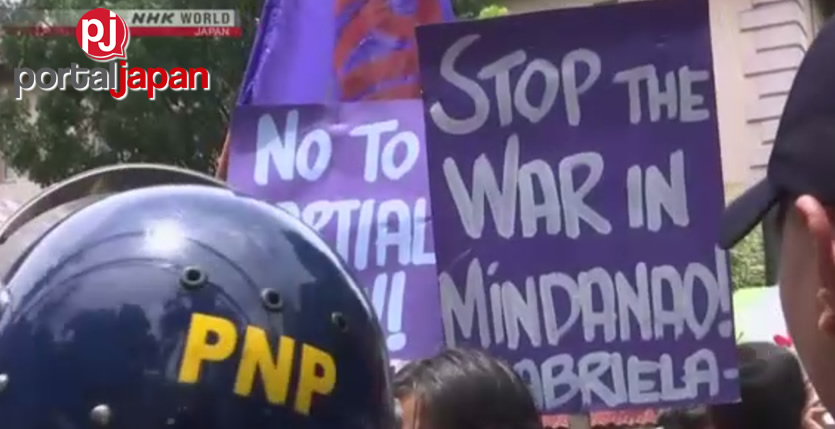The Philippines’ top court has upheld President Rodrigo Duterte’s use of martial law across the southern third of the country. He declared military rule for a period of 60 days on May 23, saying the aim is to crack down on Islamic militants fighting government security forces on the island of Mindanao.
The move was challenged by a petition from opposition law makers, activist groups and residents of the city of Marawi.
The city has been besieged by insurgents pledging allegiance to the Islamic State group. The petition claimed there was no sufficient factual basis to justify martial law.
The spokesperson of the Philippine Supreme Court, Theordore Te said: “The court dismissed the petition by a vote of 11 of its members. Three members voted to partially grant the petitions and one member voted to grant the petitions.”
A protester said: “This will embolden the Duterte administration and the militarist within the administration to even extend martial law beyond the 60 day requirement set by the constitution, so this opens up a whole new set of problems for the people in dealing with a mechanism such as martial law which we feel is not the real answer to the problems in Mindanao and to the problems of the country.”
In May, government forces clashed with the armed group.
Under martial law, the military can control designated areas and is allowed to detain suspects without warrants.
The government warns that the Islamic State group sees the Philippines as a potential base in Southeast Asia to compensate for loss of territory in Syria and Iraq.
But Duterte’s decision has drawn criticism from human rights observers. They draw comparisons with the brutal, 20-year rule of late President Ferdinand Marcos who was overthrown in 1986.
Source and image: NHK

















Join the Conversation